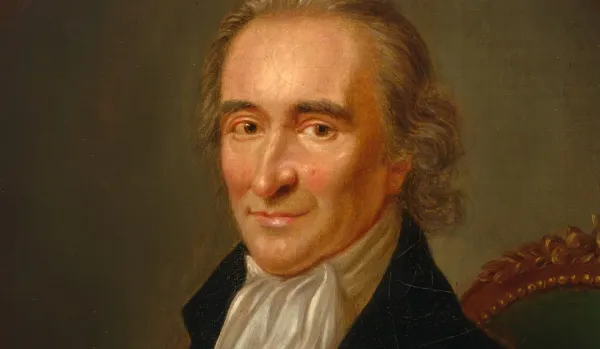Harry Lorayne, the master of total memory recall

Harry Lorayne had an international career as a memory expert, rattling off entire small-town telephone books and telling astonished audiences what was written on any page of a given issue of Time magazine. Mr. Lorayne was not a mnemonic freak. He was born with quite ordinary powers of recall, he often said. Memory, he maintained, was a faculty akin to a muscle that could be trained and strengthened. Mr. Lorayne’s attainments are all the more noteworthy in light of the fact that he grew up in poverty, struggled academically as a result of undiagnosed dyslexia and concluded his formal education after only a single year of high school. As a child, he had watched as neighborhood men did card tricks on the Lower East Side. He stole milk bottles, recouped the deposits, bought his first deck of cards and began to practice.
We’re one step closer to reading an octopus’s mind

From Ars Technica: "In 2011, researchers discovered that each arm of the cephalopod has its own brain. Using a transparent maze with food in it, held outside of the tank, the researchers forced the octopus to navigate the maze using only its arm. It couldn’t rely on chemical cues processed by its brain to find the food, so it had to use its arm’s individual “brain” or neuron bundle, to find the food. Each octopus arm is thought to have around 10,000 neurons dedicated to sensing its surroundings. Other research shows that octopuses are the only invertebrates, besides a few insects, to use tools. They will compress shells around their bodies as a type of proto-armor and camouflage against predators. Octopuses can also mimic human movement by walking bipedally, lifting six of their legs like a skirt, and scooting along the ocean floor. However, that seems to be one of the few similarities between these cephalopods and humans, as evolution has separated us by many millions of years."
The evolutionary mystery of left-handedness

Maria Popova writes: "The question of why some humans are left-handed — including Plato, Charles Darwin, and Albert Einstein — has perplexed scientists for centuries. At the heart of it remains an evolutionary mystery, one that Wired contributing editor David Wolman, himself a lefty, sets out to investigate in "A Left-Hand Turn Around the World: Chasing the Mystery and Meaning of All Things Southpaw". Wolman traces 200 years of biological and psychological perplexity as he scours the world for answers, from a Parisian science museum that houses pioneering French surgeon and scholar Paul Broca’s bottled brains to a castle in Scotland that hides clues to the heritability of left-handedness to the neuroscience labs of Berkeley to the golf courses of Japan."
Ukrainian refugees work through trauma in a metaverse version of Kyiv

Valeria Balashova, a 28-year-old woman from the southern Ukrainian city of Odessa, fled to Bucharest in March of last year to escape the war. She has since been back only in virtual reality. In October, she was contacted by a Romanian colleague’s psychologist and asked if she would be interested in taking part in a new program designed to provide therapeutic support for Ukrainians, both at home and abroad, who were being affected by the war. This program, she was told, would take place not in a therapist’s office but in VR. The program is set within a virtual rendering of Kiev’s House with Chimaeras, a squat fortress bristling with ornate statues of animals, which sits just across the street from Zelensky’s office in the Ukrainian capital.
The poop emoji: a legal history

In 2018, the Seventh Circuit Court of Appeals issued an opinion in Emerson v. Dart in which a corrections officer, Paula Emerson, sued the county. While the suit was pending, Emerson made some unwise posts in a Facebook group for employees. The Seventh Circuit decided to excerpt the Facebook post, which contained the poop emoji. But this is only the tip of a brown iceberg. The fact that the poop emoji showed up in the Seventh Circuit means that the poop emoji was referenced countless times before — in filings made by the parties, possibly in the lower court decision, and in briefs written during the appeals process. Had Emerson v. Dart gone to trial, no doubt the lawyers would have fought over how to read “poop emoji” out loud in court to the jury. All this to say — the poop emoji has definitely come up in court.
How the famous Philly cheesesteak became huge in Pakistan

Lahore, Pakistan’s second-largest city and the capital of the historic Punjab region, is considered the country’s food hub. Its location at the crossroads of the many empires has added multicultural layers to Lahori heritage and culture, and this is reflected in the city’s food. That Indic syncretism, which Lahore has oozed with for centuries, is today introducing a new cuisine to the city’s taste buds: Philadelphian. But while Philly’s Steak Sandwich might be the first to put the sandwich on local billboards, Lahore’s love-in with the cheesesteak is decades old. Pakistan’s fast-food boom of the 1990s and 2000s overlapped with a rise in Pakistanis traveling to the U.S. for study and work. As a result, many of the food establishments launched in Pakistan at the turn of the millennium were brimming with ideas that those visiting the U.S. brought back with them. The cheesesteak was one of these.
Dolphins love to surf the bow waves
Bow-riding consists of dolphins positioning themselves in such a manner as to be lifted up and pushed forward by the circulating water generated to form a bow pressure wave of an advancing vessel.
— Massimo (@Rainmaker1973) April 16, 2023
[read more: https://t.co/wZYxWlk1ef]pic.twitter.com/G3GecnWqrd



